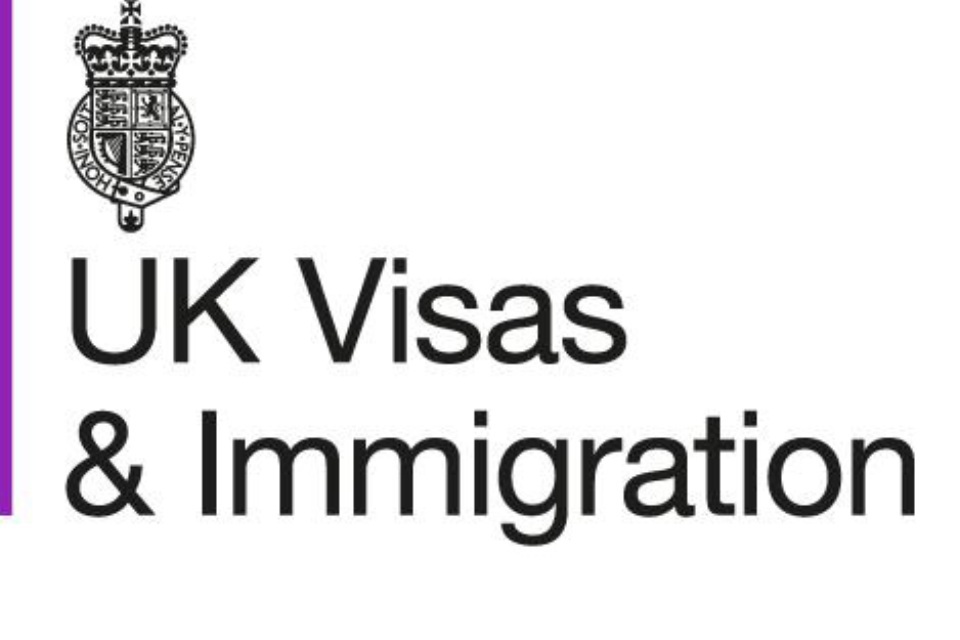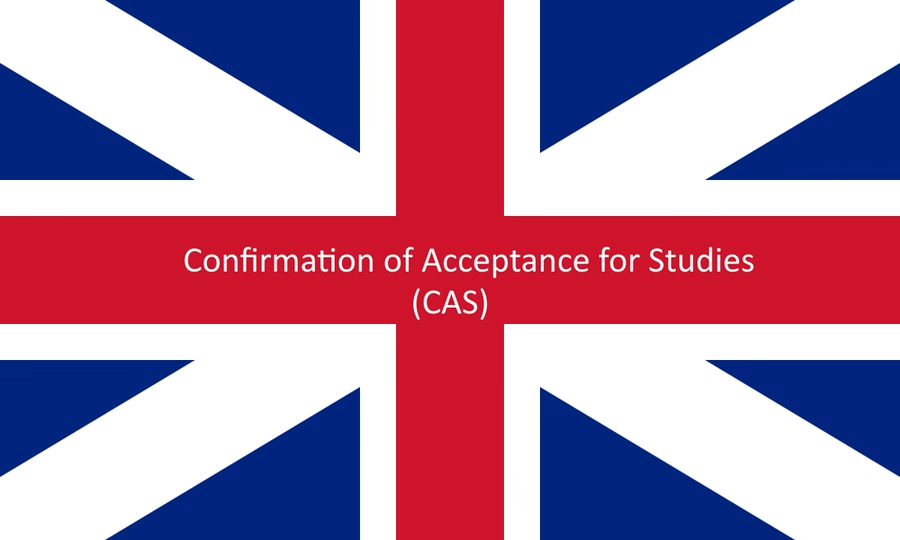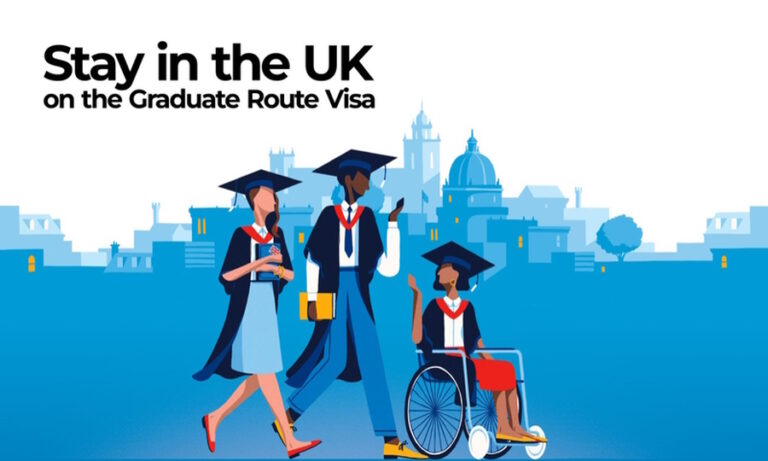What is a CAS?
A CAS (‘Confirmation of Acceptance for Studies’) is essentially the key to a UK Student route visa. It is an integral part for the majority of international students seeking to study in the UK. Many new UK students tend to know they need it. But unfortunately, many don’t quite understand how important it is both for and during their studies. This article will breakdown the key elements of a CAS and issues students sometimes have.
This article was written by an immigration expert working for UK Bound LTD.
So what exactly is a CAS?
CAS form the basis of the conditions to create a student visa which in turn provides ‘rights’. While holding a UK student visa, you have the ‘Right to rent’ and the ‘Right to study’ (on the programme stated on your CAS). You also have the ‘Right to work’ (within certain conditions – usually part-time during term-time).
The university creates the CAS with their unique Sponsor Licence. This means that the CAS (and as such, the student visa) is tied to this specific university. With a process known as ‘reporting activity’ on the ‘live CAS’, universities can manage CAS. This can even be done after they have been used. This gives some immigration authority to the university (your visa sponsor) who can report various activities. Some of these could even affect your student visa.
For example, the university can report a ‘withdrawal of sponsorship’, which will result in the cancellation of your visa. This is usually when you have missed too many classes or taken a long-term suspension of study. Universities can also update a change of study location on your CAS, usually used when taking a work placement year as part of your study. When completing your programme much earlier than intended, universities will report ‘early completion’ which will curtail the visa’s length. The final major activity universities manage is reporting you for successful completion in line with the eligibility for the Graduate Route visa (a post-study work visa).
Universities are generally happy to share CAS information and have the responsibility to notify you of any significant change which flow through to your live visa. Obviously, a visa is fundamental to your right to live and study within the UK. Our experts at UK Bound aim to facilitate a smooth transition to your new life in the UK.
What is on a CAS?
Usually, the information you will see is a summarised statement produced by your UK university. Keep in mind that there is always further ‘background’ information that you may not see. All CAS must contain the following information:
- Personal information as matching your passport (including name, date of birth, gender, passport number etc.)
- Key information regarding your course
- The RQF level, which should state what programme you are studying. This could be a below-degree programme, undergraduate (e.g. Bachelor), post-graduate taught (e.g. Masters) or postgraduate research degree (e.g. PhD)
- The CAS often also lists the course name, start date and end date
- Tuition fees, work placements and whether the programme requires an ATAS certificate
- It must also contain the evidence used when the university admitted you as an applicant. This will likely be your prior academic history
- Each CAS has a unique number specifically tied to the holder
CAS key life stages
A CAS has key life stages which determine its functionality. Once created, the university admissions or visa team holds the draft for your chosen institute. When ready the university will pay and assign a CAS. It’s status is now ‘live’ and flagged as ‘Assigned’, which means that it can now be issued and used. CAS are valid for exactly 6 months from the date of production. It is very important you check all of the information on the CAS is accurate. This is because they are created by humans and sometimes contain errors. For example, if it states you require ATAS but this is not true, your application would be refused. Making a visa application without ATAS would result in rejection.
Usually at this stage, the university would summarise the CAS into a statement with supporting remarks and send it formally with instructions. Some universities might request that you first check the information on the draft before they issue it. Other universities may just send a full printout of the live CAS without supporting remarks. They expect you to work out how to use all of the information.
Using a CAS
Now you have the CAS, it’s time to use it. Make an online student route visa application (and if applying from your home country, then attending a biometrics appointment). While you have paid and made a visa application, the CAS will remain Assigned. Only once a UKVI caseworker begins to examine your application and makes a decision, the CAS status will change to ‘Used’. Sometimes your visa application is taking a long time. We would then suggest asking your university to check the status of the CAS. If it’s still Assigned, it means no decision has been made yet. If it’s Used, then your visa is either granted or refused. In this case, you will likely receive written confirmation in the days thereafter.

All of the information on the CAS is examined when the UKVI caseworker examines your application and should match what you have stated in the application form. For example, your course title, RQF level, whether you need ATAS etc. Smaller inconsistencies may just result in a delayed decision while bigger ones could cause visa refusal.
Assuming you now have your visa and arrive in the UK, your CAS will continue to ‘sponsor’ your visa, although in a somewhat dormant state. In some instances, mistakes are made and some CAS are marked as ‘Expired’ or ‘Obsolete’ by the UKVI, which can create issues for you. Student visa holders have no way of checking this status except by asking the university to check. If you are looking to apply for the Graduate Route (post-study work visa) after you finish your studies in the UK, you should check soon after you arrive in the UK that your CAS is marked as ‘Used’. If not, it could later cause issues as the university may not be able to ‘report activity’ on your CAS.
How do I get a CAS?
Usually when you’ve received a confirmed offer of place (COP) and been admitted to your chosen university, they will send you it in digital format. This may be via e-mail or as part of the university’s admission portal.
If you’re already studying and need to stay for longer, for example, you failed a year and need to repeat, then you may be offered a CAS to use in the UK to make a new student visa application (extending your stay).
However, if you only have a single exam to resit after your current student visa expires, the university may not be able to assign you a new CAS. UK Bound can support you in such situations, so if you find yourself in need of a new CAS to extend your stay, please reach out to one of our experts.
Does everyone get one?
Not necessarily. Some people may have alternative permission to reside and study in the UK, for example, those on family or work visas. If you have a visitor visa, you would not normally be allowed to study a full degree programme. In the majority of cases, UK Bound would expect you to need a CAS to get a UK student visa.
What does it mean to have a single or integrated CAS?
Some students may not meet all the conditions for their main degree programme. Their IELTS scores were just a bit too low for example. In these cases, the university may offer you pathway routes such as INTO or a pre-sessional English language course that, if passed, allows you entry to your degree programme. Here, the university would produce a ‘single CAS’ which would create a visa that covers only the pre-sessional English language course and then again another ‘single CAS’ for your main programme (involving two visa applications: one from your home country and one inside the UK).
If your scores are a bit better and can meet the UKVI requirements but not quite your chosen degree requirements, you may still need to attend a pre-sessional or foundational programme, but the university may be able to offer an ‘integrated CAS’. This CAS would produce a student visa that covers both the initial programme + your main degree programme. This makes it easier for you to have one longer visa as opposed to having to make two visa applications.

What should I be aware of while holding a CAS?
Firstly, you can only have one valid CAS at one time. Some students make a common mistake of applying to several different universities and getting CAS from all of them in the hopes of making a last-minute decision. This can often result in studying at none of these universities as the visa application may be refused because it was marked as Obsolete when a second new CAS in your name was produced. UK Bound offer personalised support to help navigate and track your applications to avoid issues such as this.
CAS may have special notes related to a set of complex rules under ‘Academic Progression’. In essence, this dictates that students should always be progressing academically (such as going from a bachelor degree to a masters). However, in some cases such as when transferring programme or institute, these rules will restrict the CAS and dictate where you must make the visa application. In many unfortunate cases, students will need to leave the UK and use the CAS to make a new ‘entry clearance’ visa application. They would need to do this from their home or resident country. In such cases, it is very important to check where the CAS can be used.
If the original course start date and end date stated on your CAS is exactly one year or longer, your student visa should be granted with an extra 4 months, known as extant leave. Some UKVI caseworkers make calculation errors which result in shorter visas. It’s always best to check the length of your programme is correct. When in doubt (for example, when extending a student visa due to resits), you may wish to ask your university to add a ‘Sponsor Note’ to the CAS, highlighting the actual course length.
Our expertise
UK Bound’s expertise in both student affairs and visa issues is designed to support our clients on their journey to and in the UK. Please get in touch with an agent for a free consultation any time.

UK Immigration Rules are constantly changing and the information written in this article is true as of date of publication. Please be advised to always consult an expert when making important visa decisions.






One Comment
Comments are closed.